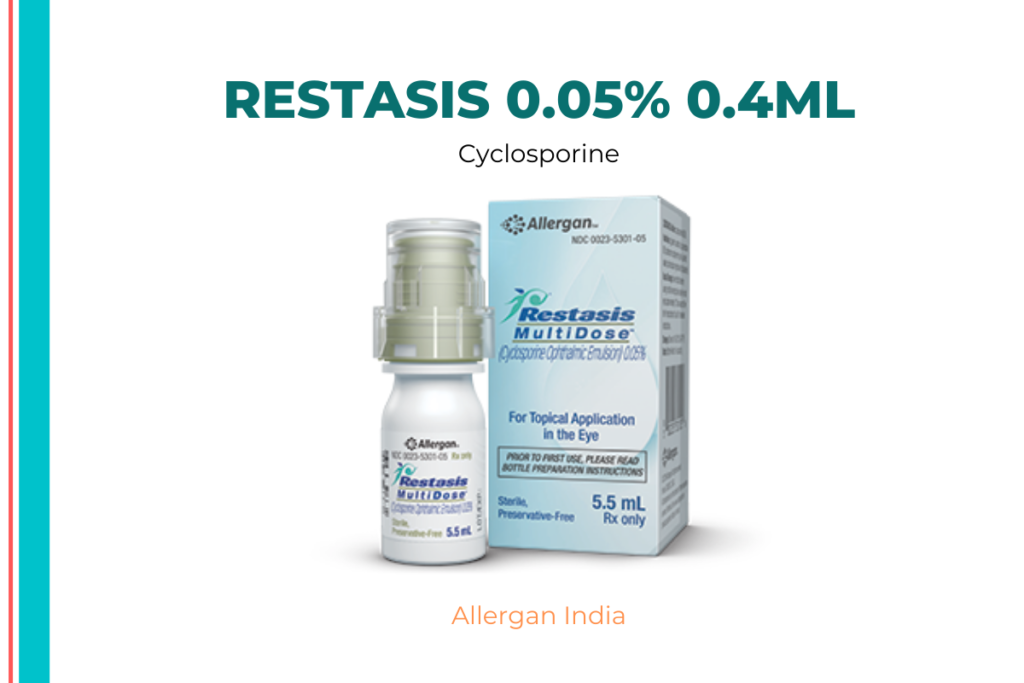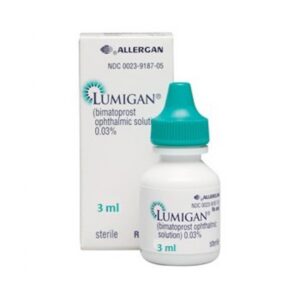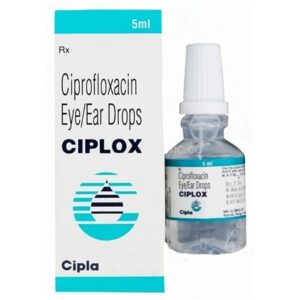Restasis
Restasis is an immunosuppressant medication that helps to relieve pain and inflammation in rheumatoid arthritis, cure psoriasis, and prevent organ rejection following a transplant. It’s also used to alleviate dryness in the eyes. Rheumatoid arthritis is an autoimmune illness in which the body’s immune system destroys its own tissue, causing discomfort and damage to the joints. Psoriasis is a chronic inflammatory skin disease.
Restasis includes cyclosporine, which suppresses the immunological system of the body. As a result, organ rejection is avoided. It helps to relieve the symptoms of rheumatoid arthritis by reducing pain and swelling. It promotes tear formation by reducing ocular irritation and edema. As a result, it relieves discomfort, maintains the eyes moisturized, and aids in the treatment of dry eyes.
Follow your doctor’s instructions for using Restasis. Depending on your medical conditions, you should take Restasis for as long as your doctor has prescribed it. Restasis may cause headaches, nausea, elevated blood pressure, loss of appetite (feeling sick and upset stomach), and diarrhoea in some people. The majority of these adverse effects do not necessitate medical treatment and will subside with time. However, if you are experiencing these adverse effects on a regular basis, you should consult your doctor.
If you have any allergies, kidney illness, uncontrolled high blood pressure, or cancer, tell your doctor before using Restasis. If you are pregnant or breastfeeding, talk to your doctor before using Restasis. Infections and skin cancer are increased by using Restasis. As a result, use caution and avoid prolonged exposure to the sun. To rule out any unpleasant side effects, tell your doctor about your health condition and medications.

Restasis uses
Rheumatoid arthritis, immunosuppressive therapy after organ transplant, psoriasis (a skin disease characterized by itchy and dry areas), and dry eyes are just a few of the conditions that people suffer from.
Medicinal Advantages
Restasis is an immunosuppressant medication that helps to relieve pain and inflammation in rheumatoid arthritis, cure psoriasis, and prevent organ rejection following a transplant. It’s also used to alleviate dryness in the eyes. Cyclosporine acts by inhibiting the action of the cells that generate inflammation in the body, particularly in the joints. As a result, pain and inflammation are reduced, and joint degeneration and disease progression are slowed over time. It works by suppressing the immunological system of the body. As a result, organ rejection is avoided. It promotes tear formation by reducing ocular irritation and edema. As a result, it relieves discomfort, maintains the eyes moisturized, and aids in the treatment of dry eyes.
Use Instructions
Your doctor will determine how long you should use Restasis based on your medical situation. Follow the doctor’s instructions for using Restasis. Tablet/Capsule: Swallow the tablet/capsule whole with a glass of water; do not break or chew it. Oral solution: Use the measuring cup included in the package to take the suggested dose by mouth. Before using, give the pack a good shake. Eye drops: Instill the drops into the eye using the dropper provided in the kit. Avoid contaminating the solution by contacting the dropper tip to the eye, eyelids, and surrounding areas.
Store in a cool, dry location away from direct sunlight.
Restasis Side Effects
Headache
Vomiting
Nausea
Blood pressure that is too high
Appetite loss.
Diarrhea.
Drug Recommendations
If you are allergic to any of the ingredients in Restasis, you should not take it. If you have liver or kidney problems, high blood pressure, low magnesium levels, or high potassium levels, tell your doctor before using Cyclosporine. Cyclosporine may make you more susceptible to infections; if you have symptoms like fever, sore throat, dyspnea, jaundice, unexplained bleeding, or bruising, contact your doctor. If you have any type of malignancy, tell your doctor before using Cyclosporine. If you are pregnant or trying to become pregnant, avoid taking Cyclosporine. Breastfeeding moms should avoid using cyclosporine because it goes into breast milk. To rule out any unpleasant side effects, tell your doctor about your health condition and medications.
Interactions Between Drugs
Drug Interactions: Cyclosporine may interact with other immunosuppressant medications (tacrolimus), anti-gout medications (thiopurine), diuretics (amiloride, spironolactone), blood pressure medications (aliskiren), and cholesterol-lowering medications (atorvastatin, pitavastatin, simvastatin). antibiotics (such as erythromycin or azithromycin), antifungals (voriconazole, itraconazole), medicines for heart issues or high blood pressure (diltiazem, verapamil, amiodarone), used to treat menstruation disorders (danazol), medicines for gout (allopurinol), and drugs for hepatitis C (colchicine, telaprevir).
When taking Cyclosporine, avoid eating grapefruit or drinking grapefruit juice.
Drug-Disease Interactions: Cyclosporine can interact with a number of diseases, including high blood pressure, liver disease, and renal disease.
Safety Suggestions
ALCOHOL
It is recommended that you avoid drinking alcohol while using Cyclosporine. It’s possible that it’ll make you feel dizzy.
PREGNANCY
Restasis is classified as a pregnancy category C drug. If you are pregnant or expecting to become pregnant, talk to your doctor before using Cyclosporine.
BREAST FEEDING
Breast milk contains cyclosporine. If you’re on Cyclosporine, don’t breastfeed.
DRIVING
Dizziness is a side effect of cyclosporine. Only drive or operate machinery if you are fully awake.
LIVER
It’s possible that you’ll need to alter your liver dose. If you have any worries about this or if you have a liver problem, please visit your doctor.
KIDNEY
It’s possible that you’ll need to modify your dosage. If you have any worries about this or if you have kidney impairment, please visit your doctor.
No habit formation
Advice on Diet and Lifestyle
Rheumatoid arthritis (RA) is a type of arthritis that affects the joints.
Physical activity improves muscle strength and reduces joint stiffness. Gentle activities such as walking or swimming for 20-30 minutes would be beneficial.
Yoga practice can also aid with joint flexibility and pain management.
Maintain a healthy weight by engaging in low-strain workouts on a regular basis and consuming nutritious foods.
Get enough sleep to help reduce inflammation and swelling by resting your muscles.
Apply a cold or hot compress to the joints for 15-20 minutes on a regular basis to follow heat or cold therapy.
Meditating, reading novels, taking a nice bubble bath, or listening to calming music are all good ways to de-stress.
Physical therapy, massage, and acupuncture may also be beneficial.
Antioxidant-rich foods include berries, spinach, kidney beans, dark chocolate, and so on.
Flavonoids are found in foods that aid to reduce inflammation. Soy, berries, broccoli, grapes, and green tea are among them.
Avoid smoking and consuming alcoholic beverages.
Eyes that are dry:
Hands should be washed frequently. Dirty hands should not be used to touch the eyes.
Rub your eyes as little as possible.
Eyeliner, mascara, and kohl should never be shared.
Wipe your eyes and face with clean towels or tissues at all times.
Pillowcases should be washed and changed on a regular basis.
If you wear contact lenses, you should clean and change them more frequently. Contact lenses should never be shared. Before placing the contact lens, remember to cleanse your hands.
Avoid gazing at digital screens for extended periods of time. Every 20 minutes, take a 20-minute break to rest your eyes.
Blink frequently to assist hydrating chemicals such as mucus and tears distribute across the eyes.
Other details: This item is non-refundable.
Concerns of Patients
Rheumatoid arthritis is an autoimmune illness in which the body’s immune system destroys its own tissue, causing discomfort and damage to joints. Pain, inflammation of the joints, trouble moving, and swelling are all symptoms of rheumatoid arthritis.
Organ transplant rejection occurs when your body sees a new organ as a foreign element and attempts to assault and reject it because it was not originally part of your body. As a result, immunosuppressive medicines such as cyclosporine are given to such patients in order to suppress their immune systems and avoid an attack on a newly transplanted organ.
Psoriasis is a chronic, inflammatory skin condition. It is not contagious, however it does seem to run in families. It causes skin to become irritated and red.
Dry eyes are a frequent eye problem that develops when your tears aren’t able to adequately lubricate your eyes. Inflammation and damage to the eye surface result from tearing instability. Burning sensations, sensitivity to light, eye redness, a feeling of something in your eyes, wet eyes, and blurred vision are some of the symptoms.
FAQs
Cyclosporine is an immunosuppressant that relieves rheumatoid arthritis symptoms by lowering inflammation and preventing joint stiffness.
If you forget to take a Restasis dose, take it as soon as you remember. If the next dose is approaching, omit the missed dose and take the regularly scheduled dose instead.
Cyclosporine may cause diarrhea as a side effect. If you have diarrhea, drink plenty of water and avoid hot foods. Consult your doctor if you notice blood in your stools (tarry stools) or if you have severe diarrhea. Do not self-medicate with anti-diarrheal medication.
Restasis use might result in abnormal hair growth, which is a typical side effect. If you have any concerns, please visit your doctor.
The immune system is known to be suppressed by cyclosporine. As a result, it raises the risk of infection and cancer, particularly skin cancer. As a result, limit your time in the sun by wearing appropriate protective clothes and applying sunscreen on a regular basis.







Leave a Reply
You must be logged in to post a comment.